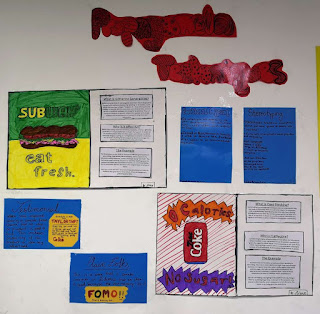A few days ago in English class we had a task of creating posters on propaganda. The aim was to understand the role of propaganda in spreading views and how it shapes people’s mindset.
What is propaganda? Propaganda is communication that is primarily used to influence or persuade an audience to further an agenda, which may or may not be objective and may include selectively presenting facts to encourage a particular synthesis or perception, or using loaded language to elicit an emotional rather than a rational response to the information being presented.
International propaganda aims to influence global audiences' attitudes and ideas, modify their connection with their home governments, or offer an alternative view of their own and the world's conditions.
The novel we are studying in class, 1984 has a key theme which is propaganda. In the novel, the Party's main and most successful weapon is utilized to deceive, confuse, and control its citizens, as well as develop loyalty toward The Party and Big Brother. The Thought Police and widespread surveillance are used by The Party to ensure that every citizen is loyal to The Party and to crush disobedience. So to further study on the topic of propaganda and to get a better understanding we were tasked to make posters on propaganda.
The ATL skills we have developed for this task are our research skills since we will have to do extensive research on propaganda and the 1984 novel to see how they are connected.


Comments
Post a Comment